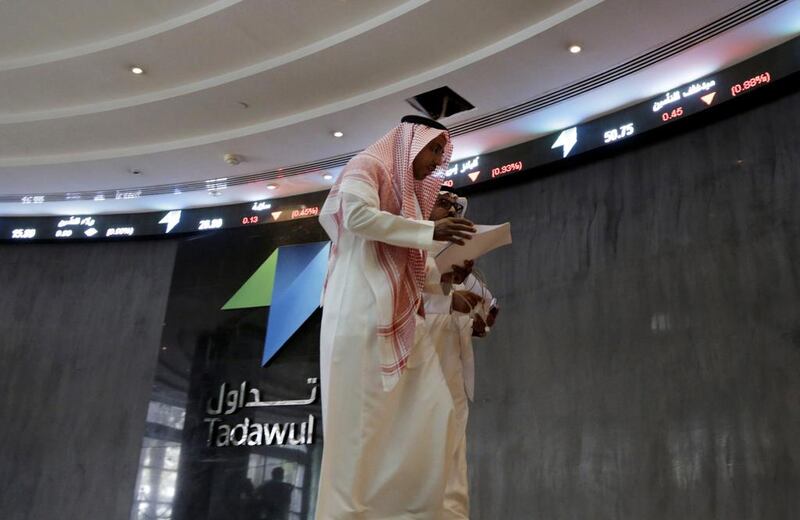Saudi Arabia’s main stock market index jumped on Sunday after King Salman reinstated bonuses for state employees amid rising revenues from oil and the success the government has had reducing its budget deficit this year.
The Tadawul All Share Index rose as much as 1.7 per cent to 7,017.08, the highest level in two weeks. Year to date, the index has dropped 3.35 per cent. Last year, the measure rose 4.32 per cent.
Late on Saturday, a royal decree returned all allowances, financial benefits and bonuses to civil servants and military staff that had been scaled back in September.
Minister of state Mohammed Al Sheikh said in a statement to Bloomberg that the injection of more money was expected to stimulate economic growth.
“When the cuts were announced last year, it helped the budget deficit,” John Sfakianakis, director of economic research at the Gulf Research Center, told Bloomberg. “They can let off the pressure on the salaries part now.”
Brent benchmark crude has almost doubled in value from the multi-year lows of January 2016 which led the kingdom to embark on a series of spending cuts to rein in its deficit.
The country is the world’s biggest oil exporter and has felt the brunt of the crash in oil prices that began in mid-2014.
Saudi Arabia’s deputy economy minister said on Saturday that the kingdom had reduced its deficit in the first quarter of 2017 by more than expected in part because of prudent public spending.
“The fact that the first quarter deficit was 26 billion [Dh25.46bn] riyals when 54bn riyals was projected at the beginning of the year. This is a very excellent step toward rationalised spending,” Mohammed Al Tuwaijri told state-run Ekhbariya TV.
Saudi’s deficit shrank to 297bn riyals in 2016, down from a record 367bn riyal gap in 2015. In its 2017 budget plan, Riyadh said the deficit would shrink further this year to 198bn riyals because of higher oil prices and non-oil revenues. The IMF has at times been critical of the degree of austerity implemented in the Arabian Gulf but overall has been positive about Saudi efforts to seek other sources of revenue apart from hydrocarbons, such as pledging to partially privatise state assets like Saudi Aramco.
The Saudi government has been urged by the IMF to reform its fiscal system to bring it into line with international best practice and to attract private sector investors, not only to Aramco and the hydrocarbon sector but to a wide range of privatisation projects it has set out as part of the Vision 2030 reform programme.
The urgency for reform still remains as Saudi Arabia’s economy and that of the wider Gulf is hardly out of the woods yet. While the price of oil has risen to about US$50 per barrel from last year’s lows, it is still far off from the $100 per barrel that was the average in the years preceding the crash. In its World Economic Outlook this month, the IMF said growth for Middle East oil exporters would drop sharply in 2017 as producing countries cope with lower petroleum production and fiscal reforms.
The Saudi economy is forecast to grow at just 0.4 per cent this year, compared with last October’s projection of 2 per cent, the IMF said. The kingdom is forecast to expand 1.3 per cent in 2018, down from a 2.3 per cent projection in January.
On Sunday, the Saudi stock exchange initiated a T+2 settlement cycle in line with requirements for inclusion in MSCI ‘s emerging market benchmark index.
mkassem@thenational.ae
* with agencies
Follow The National's Business section on Twitter






